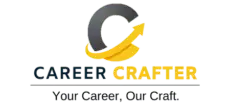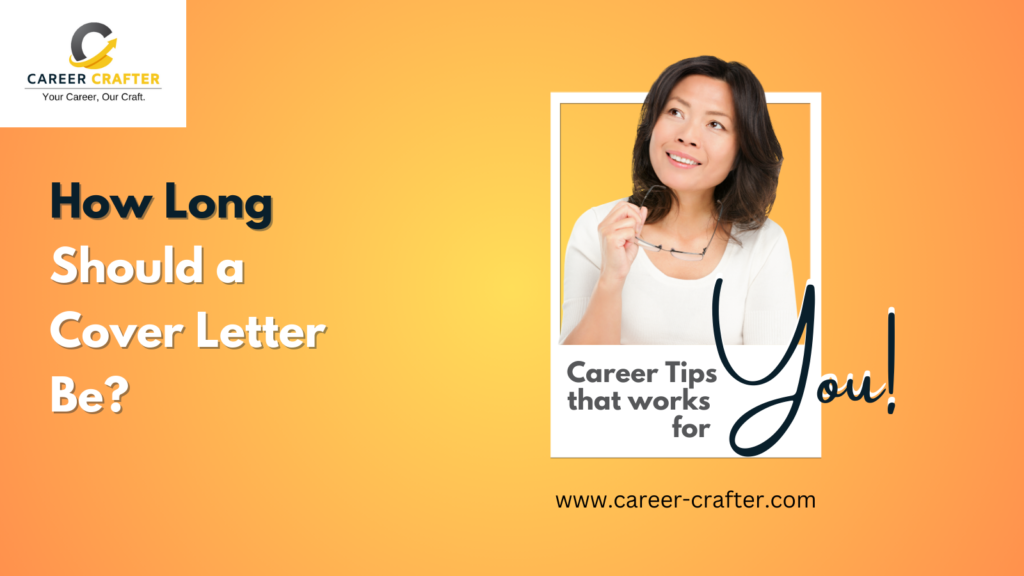As a mid to senior-level job seeker, finding the right job can be a daunting task. Among the many elements of a job application, the cover letter holds significant weight. However, one question that often arises is: How long should a cover letter be? In this comprehensive guide, we will delve into this issue and provide you with the best practices and solutions to create an impactful cover letter that will capture the attention of hiring managers.
The Problem:
1. Lengthy Cover Letters:
Many professionals struggle with determining the appropriate length of a cover letter. They wonder if it’s acceptable to provide a comprehensive overview of their qualifications or if a shorter, more concise version is preferred. Crafting a lengthy cover letter may risk losing the reader’s attention and diluting the key messages.
2. Omitting a Cover Letter:
Some job seekers question whether it’s okay to skip the cover letter altogether. They may believe that their resume alone is sufficient to showcase their skills and experience. However, omitting a cover letter can hinder your chances of standing out among other applicants and effectively conveying your qualifications. With the rise of applicant tracking systems, including a cover letter can help ensure your application is effectively evaluated.
Understanding the Ideal Length:
A cover letter should be no longer than one page. Typically, three to four paragraphs are sufficient to convey your message effectively. The goal is to entice the reader, not to tell your entire story. Hiring managers often have to sift through numerous applications, so it’s essential to keep your cover letter concise and to the point. A well-structured cover letter with three to four paragraphs will allow you to highlight your relevant qualifications and experiences without overwhelming the reader.
1. A cover letter should be no longer than one page.
2. Typically, 3-4 paragraphs are sufficient.
3. The goal is to entice the reader, not tell your entire story.
Solutions:
1. Be Concise and Targeted to the Job Description:
When it comes to cover letters, less is often more. Each cover letter section should be tailored to address specific requirements mentioned in the job posting. Aim for a length of one page or approximately 3-4 paragraphs. By being concise, you demonstrate your ability to communicate effectively. Prioritize the most relevant information, including key achievements, skills, and qualifications. Customize your cover letter for each job application to address specific requirements mentioned in the job posting.
2. Focus on Impactful Content for the Hiring Manager:
Hiring managers are more interested in your accomplishments and results rather than a laundry list of job responsibilities. In the second paragraph, highlight your key achievements and how they align with the job requirements. Instead of providing a lengthy description of your past roles, emphasize your achievements and the value you brought to your previous employers. Use specific examples to demonstrate your skills and highlight how you contributed to the success of your teams or projects.
3. Structure your Cover Letter:
A well-structured cover letter enhances readability and makes it easier for hiring managers to extract key information. Begin with a strong first paragraph that grabs the reader’s attention and clearly states your intent. Each paragraph serves a specific purpose in conveying your qualifications and enthusiasm for the role. Use bullet points or subheadings to break up the text and draw attention to important details. Use the third paragraph to express your interest in the company and how your background aligns with its goals. Close the cover letter with a confident statement and a call to action, expressing your enthusiasm for the position and your desire to discuss it further.
4. Complement Your Resume:
A cover letter should not duplicate the content of your resume but rather provide additional context and insights. Use it to explain any gaps in employment, transitions between industries, or career changes. Highlight your unique qualifications and skills that may not be immediately evident in your resume. This is your opportunity to showcase your personality, passion, and motivation.
5. Don’t Skip the Cover Letter:
Even if a job posting does not explicitly require a cover letter, submitting one showcases your professionalism and commitment to the application process. It provides an avenue to demonstrate your writing skills and your ability to communicate effectively. By including a well-crafted cover letter, you set yourself apart from other candidates and increase your chances of making a positive impression.
Showcase Your Knowledge of the Company and Job Requirements:
Tailor your cover letter to the job description. Research the company and understand its values, mission, and products. Use this information to explain how your skills and experiences align with the specific job requirements. By demonstrating your knowledge of the company, you show that you are genuinely interested in the position and have taken the time to understand what the company is looking for in a candidate. This tailored approach can set you apart from other applicants and increase your chances of landing your dream job.
1. Tailor your cover letter to the job description.
Cover Letter Examples:
Cover Letter Template 1:
[Your Name]
[Your Address]
[City, State, ZIP Code]
[Email Address]
[Phone Number]
[Date]
Dear [Recipient’s Name],
I am writing to express my keen interest in the [Job Title] position at [Company Name], as advertised on [Job Board/Company Website]. With [X] years of experience as a [Your Current Position/Related Position] in the [Industry], I am confident in my ability to contribute to your organization’s success.
[Paragraph 1: Introduction]
Capture the reader’s attention by mentioning your interest in the specific role and briefly explaining why you are a strong fit for the position.
[Paragraph 2: Key Qualifications]
In the second paragraph, provide specific examples of your achievements and how they align with the job requirements. Highlight your relevant skills, experiences, and accomplishments that directly align with the job requirements. Use specific examples to demonstrate your expertise and showcase your potential value to the company.
[Paragraph 3: Company Research]
Demonstrate your knowledge and understanding of the company by mentioning key achievements or recent projects. Explain how your skills and background can contribute to their continued growth and success.
[Paragraph 4: Closing and Call to Action]
Express your enthusiasm for the opportunity to contribute to the company and reiterate your interest in the position. Thank the reader for considering your application and expressing your eagerness to discuss your qualifications in an interview. Provide your contact information for further correspondence.
Thank you for considering my application. I have attached my resume for your review. I look forward to the opportunity to discuss how my skills and experiences align with [Company Name]’s goals and contribute to its continued success.
Sincerely,
[Your Name]
Cover Letter Template 2:
[Your Name]
[Your Address]
[City, State, ZIP Code]
[Email Address]
[Phone Number]
[Date]
Dear [Recipient’s Name],
I am excited to submit my application for the [Job Title] position at [Company Name]. With a proven track record of [X] years of success in [Industry/Specific Field], I am confident that my skills and experiences make me an ideal candidate for this role.
[Paragraph 1: Introduction]
In the first paragraph, introduce yourself and mention your interest in the position. State how you discovered the job opening and express your enthusiasm for the opportunity to contribute to the company’s growth.
[Paragraph 2: Key Strengths and Achievements]
Highlight your core strengths, such as leadership abilities, problem-solving skills, or specific technical expertise. Provide examples of past achievements that demonstrate your value and impact in previous roles.
[Paragraph 3: Company Alignment]
Explain why you are interested in joining [Company Name]. Showcase your research and mention specific aspects of the company, such as its values, mission, or recent accomplishments, that resonate with you. Connect your own career goals and values to the company’s vision.
[Paragraph 4: Closing and Call to Action]
Reiterate your interest in the position and express your desire to contribute to the company’s success. Thank the reader for considering your application and requesting the opportunity to discuss your qualifications in more detail during an interview.
Thank you for considering my application. Please find attached my resume for your review. I would welcome the opportunity to discuss how my skills and experiences align with the needs of [Company Name]. I look forward to the possibility of meeting with you to further explore this opportunity.
Sincerely,
[Your Name] Remember to customize these templates to suit your
Conclusion:
Crafting an effective cover letter is crucial for mid to senior level managers seeking new job opportunities. By following the best practices outlined in this comprehensive guide, you can create a concise, impactful, and targeted cover letter that increases your chances of securing an interview. Remember to be concise and focused, highlight your achievements, structure your letter effectively, complement your resume, and never underestimate the power of a well-crafted cover letter. It showcases your professionalism, communication skills, and enthusiasm for the role.
For more in-depth guidance on cover letter writing, as well as resume writing and LinkedIn optimization, consider checking out our resume writing and LinkedIn optimization services at Career Crafter to learn more about how we can assist you in your job search journey.
Remember, a well-crafted cover letter is your opportunity to make a strong impression and differentiate yourself from other applicants. Take the time to tailor your cover letter for each job application, highlighting your unique qualifications and showcasing your passion for the role. With a compelling cover letter, you’ll be one step closer to landing your dream job.

